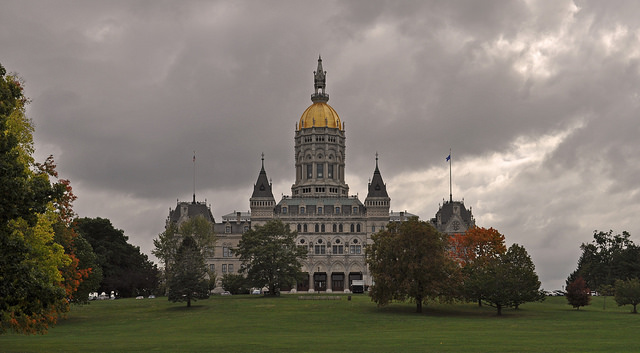
The Connecticut House Environment Committee held a hearing earlier this week on House Bill 5363, legislation seeking to impose the nation’s first-ever statewide carbon tax. If implemented, this regressive new tax would significantly drive up utility bills, gas prices, and other energy costs.
As such, Americans for Tax Reform opposes HB 5363 and sent a letter to committee members urging them to vote “NO” on this and other attempts to levy a carbon tax. ATR is reminding Nutmeg State lawmakers that after being dealt the two largest state tax hikes in history under Gov. Dan Malloy and 20 Obamacare taxes in just the last eight years, the last thing their constituents need is a carbon tax.
Connecticut isn’t the first to see carbon tax legislation pop up. Maryland, Washington, New York, Hawaii, Rhode Island, Vermont and Maine have all pursued legislation to levy a carbon tax. Most recently, the Washington State legislature struck down carbon tax legislation because it would be arduous to administer and disproportionately affect the most vulnerable households in the state.
Natural gas, oil and coal, which would be taxed under carbon tax legislation, make up 80 percent of energy consumption in the United States. Since low income households spend a greater share of their income on energy consumption than high income households, a carbon tax is a direct hit on those who can least afford it.
Carbon taxes also have an adverse effect on businesses. The Tax Foundation has found that the implementation of a carbon tax would make states less competitive than states without the tax, prompting companies and ultimately individual taxpayers to leave the state for a more favorable tax climate. Outmigration of businesses means a loss of jobs for individuals and revenue for the state.
Furthermore, implementing a state carbon tax would counteract the positive effects of the recently enacted federal tax reform. Not only would a carbon tax raise utility bills, it would lead to higher gas prices. For example, if the bill in Washington State were to be enacted, it is estimated that it would increase gasoline prices 10 cents per gallon by 2020, according to legislative analysis in Washington State.
HB 5363 is expected to be approved by the House Environment Committee, but its prospects for passage are less certain on the Connecticut House floor. For more information on the harm that a carbon taxes would do the state economy and household finances, check out the fact sheet put out by the National Association of Manufacturers.

